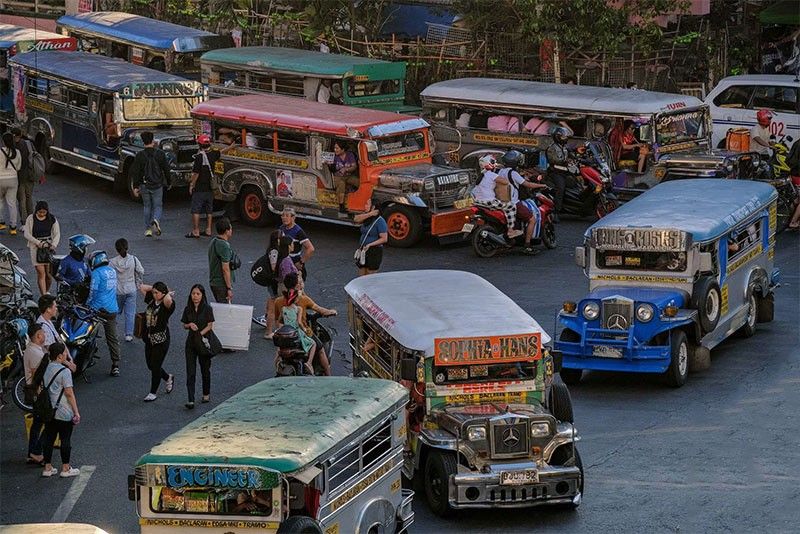
Upgrade to High-Speed Internet for only ₱1499/month!
Enjoy up to 100 Mbps fiber broadband, perfect for browsing, streaming, and gaming.
Visit Suniway.ph to learn
MANILA, Philippines — The College of Cardinals is set to elect the new universal leader of the Catholic Church since the conclave starting on May 7.
Despite being the “princes” of the Church, the cardinals, however, are not exempt from excommunication if they violate the rules of the conclave.
What is excommunication. According to the Code of Canon Law, excommunication is a kind of censure or “medicinal penalty” to secure the correction of the offender and his reintegration into the life of the Church.
This means that excommunication is not a permanent state; some excommunicated penalties can be remitted by a local bishop or by the Holy See.
According to Canon 1331, an excommunicated person is prohibited from the following:
- From celebrating the Sacrifice of the Eucharist and the other sacraments;
- From receiving the sacraments;
- From administering sacramentals and from celebrating the other ceremonies of liturgical worship;
- From taking an active part in the celebrations listed above;
- From exercising any ecclesiastical offices, duties, ministries or functions;
- From performing acts of governance.
Two kinds of excommunication. The two kinds of excommunication are called “ferendae sententiae” and “latae sententiae.”
Ferendae sententiae refers to the penalties that require a judgment from an ecclesiastical authority like the pope or a bishop.
Meanwhile, latae sententiae are penalties imposed automatically upon the commission of the offense.
Rules of the conclave. The rules of the conclave are governed by the Apostolic Constitution Universi Dominici Gregis, written by Pope John Paul II on Feb. 22, 1996. Violations of these rules may result in a laetae sententiae excommunication:
1. Simony
Simony is an act where someone pays or sells something in exchange for ecclesiastical privileges such as church positions or roles.
The term Simony came from Simon Magus, a figure in the Acts of the Apostles, who tried to buy the power of the Holy Spirit from the apostles.
According to the apostolic constitution, if a Simony has been committed during the election of a pope, the election may not be challenged and will remain valid.
2. Secretly make plans for the next pope
The rules also state that no one, including Cardinals, is permitted to make plans for the election of the next Pope, promise votes, or make related decisions in private meetings while the current Pope is still alive and has not been consulted.
3. Accepting secular interference
The rules also ensure the exclusion of any outside influence in the election of the Supreme Pontiff.
The rules warned that anyone involved in the election of a new Pope — including Cardinals and their staff — is strictly forbidden from taking any assignment from a government or political leader to influence the election in any way, even if it's just a suggestion.
This means that they cannot be under the orders of any head of state or monarch with regard to who to elect as pope or to veto an election of one.
“I intend this prohibition to include all possible forms of interference, opposition and suggestion whereby secular authorities of whatever order and degree, or any individual or group, might attempt to exercise influence on the election of the Pope."
4. Entering into agreements
The cardinals who are voting cannot make any secret deals, promises, or agreements that would force them to vote for or against a specific person or people.
According to the rules, cardinals cannot make any agreements or deals before the conclave. It also described that even if these promises or agreements are under oath, they are considered invalid.
5. Violation of secrecy
The cardinals, being sequestered during the conclave, are also sworn to secrecy.
To avoid external influences during the election process, they are prohibited from receiving messages of any kind or even reading the newspaper, watching television, or consuming any form of media.
Cardinal electors are ordered to maintain secrecy concerning these matters even after the election, unless granted special and explicit permission by the Pope.
Recording devices. Cardinal-electors are also prohibited from introducing any form of recording device within the election.
Revealing of votes. Cardinal electors are also forbidden to reveal, directly or indirectly, information about the voting and matters discussed or decided concerning the election, both before and during the election.
This also applies to non-elector cardinals in general congregations.

 1 month ago
71
1 month ago
71



